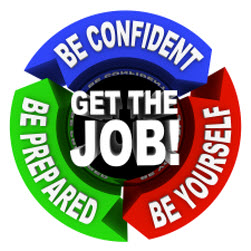 In the course of my career I have interviewed thousands of individuals seeking employment at all levels from the entry-level college graduate to the Chief Financial Officer. While my experience spans across a wide variety of industries, the interview mistakes that I’ve seen are constant.
In the course of my career I have interviewed thousands of individuals seeking employment at all levels from the entry-level college graduate to the Chief Financial Officer. While my experience spans across a wide variety of industries, the interview mistakes that I’ve seen are constant.
Once you have procured a meeting with a potential employer, there is a tremendous amount of preparatory work to be done. Here are a few strategies to increase your chances for a successful interview.
1. DO YOUR HOMEWORK
Research the company, department and position. An interviewer will expect that you have looked up the company and understand their purpose. Questions based on your findings would be welcomed. Have a clear understanding of where you would fit in and how you would be an asset. Be prepared to sell the interviewer on this concept.
2. PREPARE AND THEN PREPARE FOR THE UNEXPECTED
Preparing means to personally prepare for the interview and to make sure you have what you need when you arrive and arrive on time! Remember, first impressions are EVERYTHING.
Get a good night’s sleep and eat a decent meal. An interview might take 15 minutes or three hours if you are passed on to several people. Running out of energy with a growling stomach would not fair well.
Look your best. Interviewers will notice if you did not take the time to put your best foot forward, and they will question whether you would demonstrate the same lack of interest to their clients, customers, vendors, executives, etc. It may sound nit-picky, but a run in the pantyhose, chipped nail polish, a five-o’clock shadow or a wrinkled shirt are all indicators that you just did not care enough to WOW the interviewer. The competition is fierce. Potential employers need to be “WOWed”.
Be on time. Map out your route to the interview in advance and plan for the unexpected. What time is your interview? Might there be traffic? Make sure that you make allowances for unforeseen circumstances and have a back up plan. Think it through and even go on a “dry run” if you can. Being late is unacceptable.
Get it right. A major mistake is mispronouncing the interviewer’s name. Find out how to correctly pronounce the person’s name in advance.
Be confident and articulate. Maintain good eye contact and demonstrate good listening skills. Don’t interrupt the interviewer and prepare appropriate questions to ask regarding the company and position. Be polite to everyone that you come in contact with. The person riding up the elevator with you might be your future boss!
Bring necessary materials (and put away unnecessary ones). Several, crisp copies of your résumé should be in a folder or bag. Bring your own pen, a notepad to take notes or to review questions that you have jotted down prior to the interview, a reference sheet if requested and any other supporting materials that advocate your candidacy. Don’t offer references if you haven’t been asked. Make sure that all contacts are accurate and phone numbers are up to date. Also, make sure that the people on your reference sheet know that you have listed them as a reference and get their permission to do so. I f there is any doubt as to whether or not a person will speak of you in a positive light, then don’t list them.
Turn cell phones off and make sure that your briefcase/handbag, etc. is neat and organized. If you are rummaging through clutter to find something during your interview, then you are showcasing poor organizational skills.
3. LEAVE A LASTING IMPRESSION
Always make sure to thank the person for his or her time. Let them know that you look forward to hearing from them and express your interest. Follow up with a written thank you.